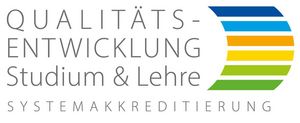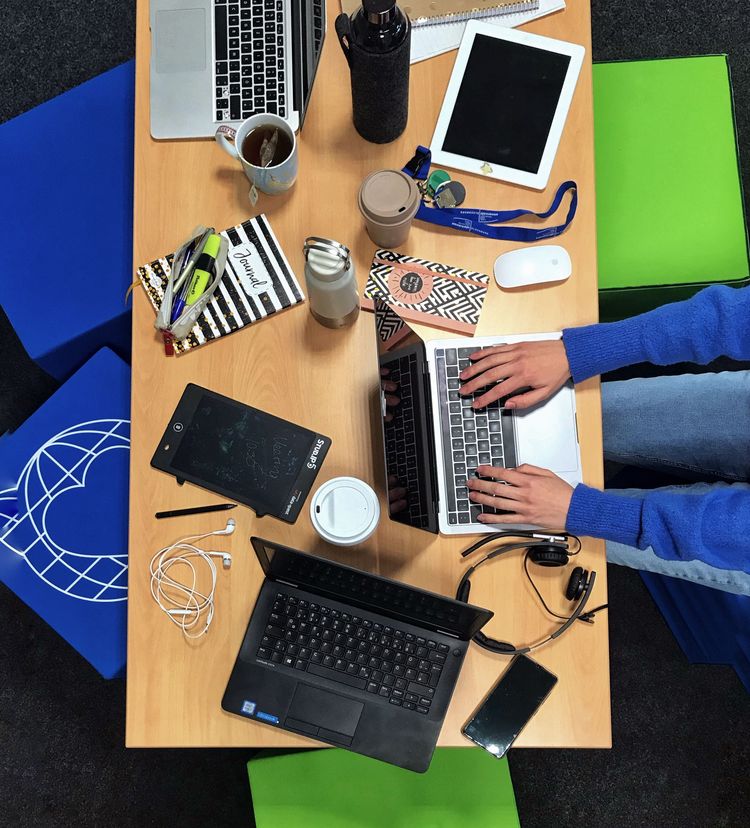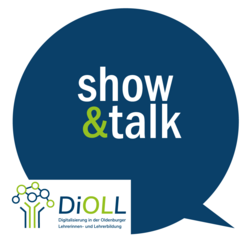November 2021
University of Oldenburg Faculty Newsletter
November 2021
University of Oldenburg Faculty Newsletter
Landing points? Assessment formats and perspectives
Day of Teaching and Learning (TdLL, Tag des Lehrens und Lernens) on Thursday 25 November 2021
Examinations and learning assessment shape day-to-day life of faculty and students. They are a permanent feature of our education as we move from primary school through to vocational training programmes, university degrees and continued professional development. But why do we actually have exams? What is their purpose? What are the best ways to design exams and assessment? And what about students’ fear of exams, both before and during the exam itself?
These and many other questions will be discussed at this year’s Day of Teaching and Learning on Thursday 25 November 2021, titled ‘Landing points? Assessment formats and perspectives’. In collaboration with faculty and students at the University of Oldenburg, a varied programme featuring different perspectives on exams and assessment has been put together.
All University of Oldenburg faculty, students and staff are invited to attend the day, and to get some inspiration, to ask questions and to connect with each other.
Theoretical perspectives from pedagogy, philosophy and economics
In a joint session, Heinke Röbken, Till-Sebastian Idel and Paul Blattner will be approaching the topic of examinations as instructors and researchers at the university from three different theoretical perspectives. Heinke Röbken, Professor of Educational Management (School I), will use studies in education economics to counter common myths with empirical research about examinations and grading at universities. Using Michel Foucault’s theory of power, Paul Blattner, from the Institute of Philosophy (School IV), will be exploring the moments in and aspects of examinations that constitute the subject. Till-Sebastian Idel, Professor of School Pedagogy and General Didactics (School I), will address the ambivalent relationship between pedagogy and examinations. The subsequent conversation will provide the opportunity for further discussion with the speakers.
Practical inspiration for assessment and exam design
A variety of practical perspectives on exams and assessment will be presented and discussed during five parallel sessions.
Dr Dorthe Behrens (School I, Institute of Educational Sciences) and students Lisa Brahmsmann, Thanh Hang Dao and Markus Kempe will be presenting ideas for relevant examination methods in schools today, as developed by students in an educational science seminar. The group will also present and discuss the examination format used in the seminar as an example for contemporary examination at the university.
In her presentation, Natalie Dutescu (School IV, Institute of Philosophy) will focus on the ethical assessment design, in particular the question of preventing arbitrariness. She will be discussing ways to transparently prepare and conduct examinations.
E-portfolios are a supporting, process-oriented examination format. In his talk, Anatolij Fandrich (School II, Department of Computing Science) will be speaking about his course Soft Skills and Technical Competence, in which students make objects using a 3D printer, laser cutter and micro-controllers and document the work on their project in an e-portfolio.
Students often have very different backgrounds – both in terms of their studying experience as well as in examination situations. In their talk, Ayla Satilmis (Teaching and Learning in Higher Education, focus on gender and diversity) and Carolin Keune (Student Representative Committee) will be discussing designing exams that take that diversity into account.
Many students feel anxious about exams. In his presentation at the Day of Teaching and Learning, Wilfried Schumann (Head of the Psychological Counselling Services offered by the university and Studentenwerk) will be presenting a number of methods that students can use to reduce their exam-related stress – alone or in collaboration with their instructors.
Lunch break: Time to move and recharge with power food
During the lunch break, participants will have the chance to take an active break organized by the University Sports Office or attend a live cooking session, in which you can prepare power food to help you concentrate during exams. Those interested in taking part in the cook-along can register for the Live Cooking group after signing up for the TdLL on Stud.IP. You will receive the shopping list a few days in advance.
Students’ research perspectives on the future
Five student research groups have explored various aspects of the “Future” and will present their results in a poster session. They will discuss interpretations of the term “future” in climate change movements (School IV), how climate change affects the future of stony corals (School V), various meanings of “home” in migration (School III), the impact of election forecasts on voter behaviour (School I) and future methods of predicting the course of Alzheimer’s disease (School VI).
Students help shape changes at the university
How is my university changing? And how can I be part of this change? This discussion focuses on students who are involved as “DigitalChangeMakers” at their universities. “DigitalChangeMakers” are a student working group organised by the Hochschulforum Digitalisierung (HFD), a think tank that facilitates discourse on higher education in the digital age. They will be talking about which university-wide topics they have a say in, why they think it is important to get involved and how they benefit from being part of and shaping the change processes.
Presentation of the Award for Excellence in Teaching
This year’s winners of the University of Oldenburg’s Award for Excellence in Teaching will be announced at the end of the Day of Teaching and Learning. The prizes will be awarded in the following categories: Best Course, Research-Based Learning and Best Course Evaluation. In the first two categories, students had the opportunity to nominate courses. In the final category, faculty members could apply for this award themselves by submitting their course evaluations. The patron of the Award for Excellence in Teaching, which is sponsored by University Society Oldenburg, is the Vice President for Instruction and International Affairs.
Further Information
Programme (in German) Register here Award for Excellence in Teaching
Online, blended, hybrid and flipped – terms and scenarios for teaching with digital media
What’s the difference between online and hybrid courses? And what exactly does “flipped classroom” mean? In the e-Didactics blog, we take a closer look at the four terms that have become increasingly common since the start of the pandemic and explore a range of digital learning formats – including an explanation of concepts and potential scenarios.
For more information (in German), visit the e-Didactis blog
Grants for Research-Based Learning instructional projects in the winter semester 2021/22
At the beginning of July, the Research-Based Learning selection committee, headed by Prof. Verena Pietzner, Vice President for Instruction and International Affairs, selected the following three instructional projects for funding:
- Seminar New Positions on Ownership (School IV, Institute of Philosophy)
- Colloquium Research and Development in Sport (School IV, Institute of Sport Science)
- Back to Life: Herbaria as Infrastructure for Transdisciplinary Research and Outreach (School V, Institute of Biology and Environmental Sciences).
The selection committee consists of representatives from all schools and one student member. The instructional projects will be carried out during the winter semester 2021/22 and will receive funding for material and supplies as well as for hiring student assistants, amounting to a maximum of €3,000.
For more information, please refer to the forschen@studium page. forschen@studium
Deadline for applications for Research-Based Learning instructional projects grants in the summer semester 2022 and the winter semester 2022/23: 16 January 2022
As part of the funding programme Research-Based Learning, faculty and instructors at the University of Oldenburg can receive grants for implementing research-based learning in their courses. Applications for funding for courses or other activities related to research-based learning (e.g., hiring student assistants, purchasing materials/supplies and other associated costs) can be submitted until 16 January 2022. The maximum amount of funding available is €3,000 per project. It is also possible to apply for financial support (up to a maximum of €1,500) for a follow-up course in the subsequent semester.
The funding announcement and the application form can be found on the forschen@studium page.
Planning discussion – key element in the quality management system for studying and teaching

The development of a quality management system for studying and teaching is crucial for the University of Oldenburg’s transition to system accreditation. The relevant processes, responsibilities and tasks are outlined in the Handbook for Quality Management in Studying and Teaching, which is currently being discussed in various committees and will be published university-wide on Stud.IP at the beginning of 2022.
One element of the quality management system is the planning discussion, which usually takes place three years prior to the planned accreditation of a degree programme. The purpose of this meeting is for the university to review the development of degree programme during the accreditation period and to prepare for the university’s own accreditation process, which takes place every eight years.
In the run-up to the planning discussion, the Department for Study Affairs conducts a formal review of the degree program according to the criteria of the Regulations on Degree Program Accreditation in Lower Saxony (Niedersächsische Studienakkreditierungsverordnung). This is an opportunity to identify and rectify formal issues before the upcoming accreditation. The planning discussion is also a chance to initiate major changes well in advance, so that they can effectively be incorporated into the accreditation process.
Four projects have received funding for digital transformation of teaching. In the programme Strengthening University Teaching through Digitisation – managed by the new Foundation for Innovation in University Teaching (Stiftung für Innovation in der Hochschullehre, StIHL) and jointly funded by federal and state governments – the University of Oldenburg is represented with the individual project participate@UOL and as part of the collaborative project SOUVER@N. Both projects will run until mid-2024. Two further projects also received funding for 2022 from the Lower Saxony Ministry of Science and Culture’s (MWK) digitisation budget. The MWK funding is intended to contribute towards strengthening the basic digital infrastructure for teaching at universities and will thereby also aid in successfully implementing the projects participate@UOL and SOUVER@N.
participate@UOL
Participate@UOL aims to set up and maintain a Teaching Lab and a Learning Lab at the University of Oldenburg. The Teaching Lab will be managed and coordinated by the Teaching and Learning in Higher Education team at the Department for Study Affairs. Instructors will be able to get support with higher education pedagogy and media technology for developing and implementing digital and hybrid formats for teaching and learning. In the Learning Lab, which will be part of library services, students will have access to various digital tools and environments that they can use for their own projects during their studies and for collaborating with others at the university. Instructors and students will be actively involved in designing the labs. Instructors and students will also have the opportunity to get together in both labs and work on developing formats appropriate for modern teaching and learning. The participate@UOL project focuses in particular on language-sensitive, participation-based design for hybrid and digital scenarios. An academic evaluation team, involved throughout the project, will provide assistance and proactively advise about the project’s design and implementation. Finally, the project will use principles of agile project management, with students and instructors playing an active role.
SOUVER@N
The SOUVER@N project is coordinated by the University of Osnabrück in collaboration with Leuphana University Lüneburg and the University of Oldenburg. The universities of Vechta and Hildesheim, the Clausthal University of Technology, Hannover Medical School and the University of Veterinary Medicine Hannover also participate in the project, as does the project partner ELAN e.V. This alliance of medium-sized and smaller universities is pursuing the joint goal of developing their basic IT infrastructure for teaching as well as technical and pedagogical support structures. The secure and reliable infrastructure, together with the clear legal framework, should aid the participating institutions to strengthen their digital sovereignty in teaching.
Funding for student research
As part of the funding programme Research-Based Learning, students can apply for grants for materials and supplies for student research projects (up to a maximum of €500). Additional grants are available for presenting research projects at national and international conferences, either online or in-person. Applications can be submitted all year round.
For more information, please visit forschen@studium
Call for papers on the topic “Future” – forsch!, online student journal

Wanted: Contributions that explore the “Future”. Students of all disciplines can submit their research papers to forsch!, the online student journal, until 9 January 2022. Possible formats include:
- Academic paper
- Academic poster with explanatory notes
- Experimental formats with explanatory notes
For more information about the journal, formats and submission process, please visit the forsch! website.
Teaching and Learning in Higher Education workshop: Research-based learning and teaching – principles and design
- Two-day online workshop on Thursday 10 and Friday 11 February 2022, 9 a.m.–5 p.m., with Carola Schirmer and Milica Vlajkovic
This workshop offers an introduction to the theoretical and pedagogical principles of research-based learning. You will learn how to develop or revise your course design by drawing on typical research processes in your own field. The workshop also addresses key aspects of designing and organising courses based on research-based learning, such as the development of research questions, the role of the instructor and suitable examination formats.
E-Didactics lunchtime meeting (online)
- Wednesday, 10 November 2021, 12.30 p.m. to 1.30 p.m.: Accessible Teaching? with Ayla Satilmis
- Thursday, 16 December 2021, 12.30 p.m. to 1.30 p.m.: ASP.digital (2.0) - Collaborative Work with Courseware Modules in Stud.IP with Dr Dorthe Behrens and Dagmar Hasenkamp
For more information and other upcoming events, visit the e-Didactics blog
Show&Talk events organised as part of the project Digitalisation in Teacher Training in Oldenburg (DiOLL – Digitalisierung in der Oldenburger Lehrerinnen- und Lehrerbildung)
DiOLL Show&Talk events are informal opportunities to share ideas on topics related to digitalisation in schools. They showcase ideas for using digital tools in the classroom, real-world experiences and ideas and perspectives for digital teaching.
Upcoming events (online):
- Thursday, 11 November 2021, 4 p.m.–4.30 p.m.: How to Successfully Design Digital Training Courses: A Two-Hour Training Course with Kirsten Alich and Karen Vogelpohl
- Thursday, 11 November 2021, 4.30 p.m.–5 p.m.: How to Successfully Design Digital Training Courses: A Whole-Day Training Course with Asynchronous Phases with Kirsten Alich and Karen Vogelpohl
- Thursday, 9 December 2021, 4 p.m.–5 p.m.: Producing Podcasts with Audacity with Anja Roß
More information is available on the event pages of the DiOLL project
Day of Teaching and Learning (TdLL): Landing points? Assessment formats and perspectives
Programme Additional information Register via the "TdLL" event on Stud.IP











